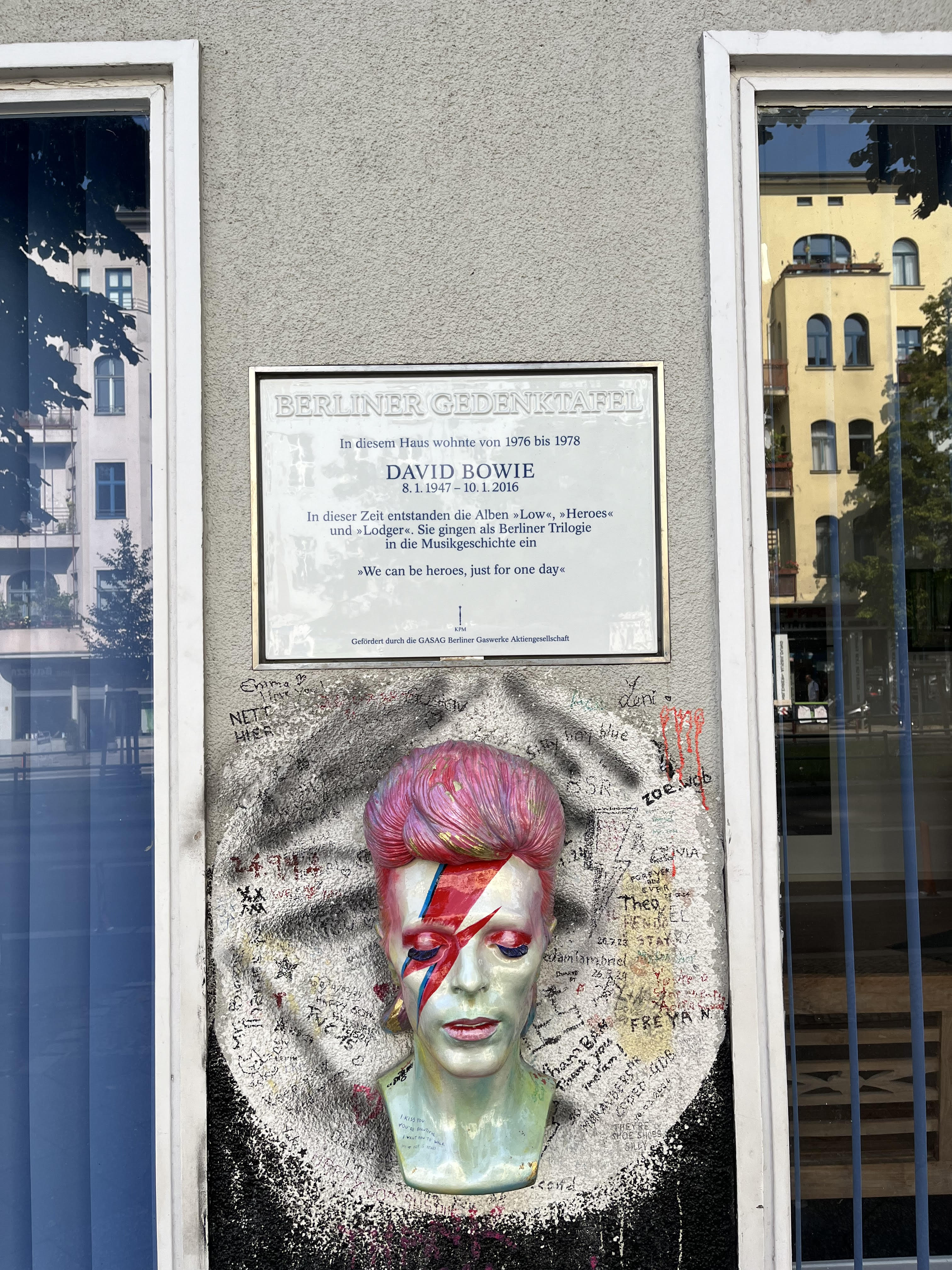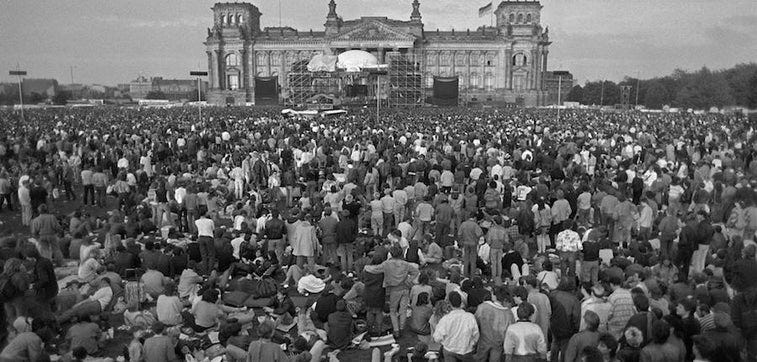Song Stories: David Bowie: Heroes
"David Bowie’s 'Heroes': A Song of Love and Defiance at the Berlin Wall
David Bowie’s “Heroes” is more than a song. It’s a moment in history, an anthem of hope and defiance born from the divided streets of Cold War Berlin. In 1977, when Bowie released this now-iconic track as part of his Berlin Trilogy, it quickly became one of his most powerful artistic statements. But the story behind “Heroes” is as gripping as the song itself, reflecting the complex emotions of a city torn in two.
A City in Pieces, an Artist in Transition
In the mid-1970s, David Bowie was in crisis. His struggle with drug addiction in Los Angeles had led to personal turmoil, and his music was veering toward the chaos of fame’s darker side. Seeking refuge, Bowie fled to Berlin, a city divided by the Berlin Wall, where East and West Germany stood as tense symbols of the Cold War. He moved into a modest apartment with Iggy Pop, his friend and collaborator, and began to reinvent himself. Moving away from the excess of LA to a rather more grounded life. He lived on a normal street, in a normal apartment and got to work on making music, and work he did. Bowie made three albums in Berlin, including 'Heroes'

Berlin was both physically and metaphorically split, a living reminder of humanity's divisions. But for Bowie, it also represented a place of renewal. It was gritty, raw, and alive with underground art scenes. His time in Berlin would allow him to reset, and it was here, at Hansa Studios, near the Wall itself, that he crafted some of his most experimental work, including “Heroes.”
The Birth of 'Heroes'
Written and recorded with longtime collaborator Brian Eno and producer Tony Visconti, “Heroes” emerged from a jam session. The music itself was built on layers of synthetic sounds, Eno’s ambient influences mixing with Bowie’s melodic sensibilities. The song’s driving rhythm and shimmering guitar lines came courtesy of Robert Fripp, whose distinctive style gave the track an otherworldly yet urgent feel. Bowie was surrounding himself with the very best musicians and focusing on making great music again.
But the heart of “Heroes” is its story—a tale of two lovers meeting at the Wall, defying the world around them for a fleeting moment of togetherness.
The lyrics, "We can be heroes, just for one day," capture the bittersweet essence of their love: a brief, beautiful act of defiance against the harsh reality of their world. Bowie himself later revealed that the inspiration for the song came from witnessing a couple—his producer Tony Visconti and a mystery woman—kissing by the Wall. In that moment, Bowie saw the possibility of transcendence, even in the most oppressive circumstances. The power of love seemed to override everything else that was happening. As a city was divided this couple became united.
A Song That Transcended the Cold War
“Heroes” wasn’t just a love song; it was a symbol of hope. Released during a time when the world was gripped by fear and division, the track resonated far beyond Berlin. Its message—one of fleeting heroism in the face of overwhelming odds—spoke to the human condition itself. People everywhere understood the longing for freedom, for connection, for love in a world that often seems bent on destruction.

Though the song didn't initially become a massive commercial success, over the years, “Heroes” has grown into one of Bowie’s most enduring works. When Bowie performed it in 1987, in front of the Reichstag in West Berlin, it became a rallying cry for unity. East Berliners gathered on the other side of the Wall, drawn by Bowie’s voice, It has been said that the speakers were turned slightly so it could be heard in the East Side of the city, an soon those people began to sing and some say that the emotional power of that performance played a small part in the momentum that led to the Wall’s fall two years later in 1989.
Bowie also called out to those on the other side of the wall just before playing "Heroes"
“We send our best wishes to all of our friends who are on the other side of the wall,” said Bowie. It led to over 200 East Berliners charging at the wall resulting in arrests and beatings. Demonstrations broke out, and it became one of the numerous acts of civil unrest that would lead to the fall of the wall in 1989 and the subsequent fall of the Iron Curtain.
Bowie is still revered in Berlin having been myself this year, his murals are seen across the city. Shops play his music, his apartment has become a memorial to the man, with flowers and messages left. He's one of the most influential figures to have ever lived in the city.
The Legacy of 'Heroes'
Today, “Heroes” is more than just a song from Bowie’s eclectic catalog—it’s an anthem for anyone who has ever dared to hope. The track’s minimalist structure, combined with its emotional depth, makes it feel timeless. It has been covered by countless artists, used in films, and played at historic events. But its real magic lies in its ability to inspire anyone who has felt trapped by their circumstances, yet yearned for just one moment of triumph.
As Bowie sings in the song’s final moments, his voice rising over the insistent pulse of the music, “We can be us, just for one day.” It’s a reminder that sometimes, in our briefest acts of courage, we become more than ourselves. We become heroes.